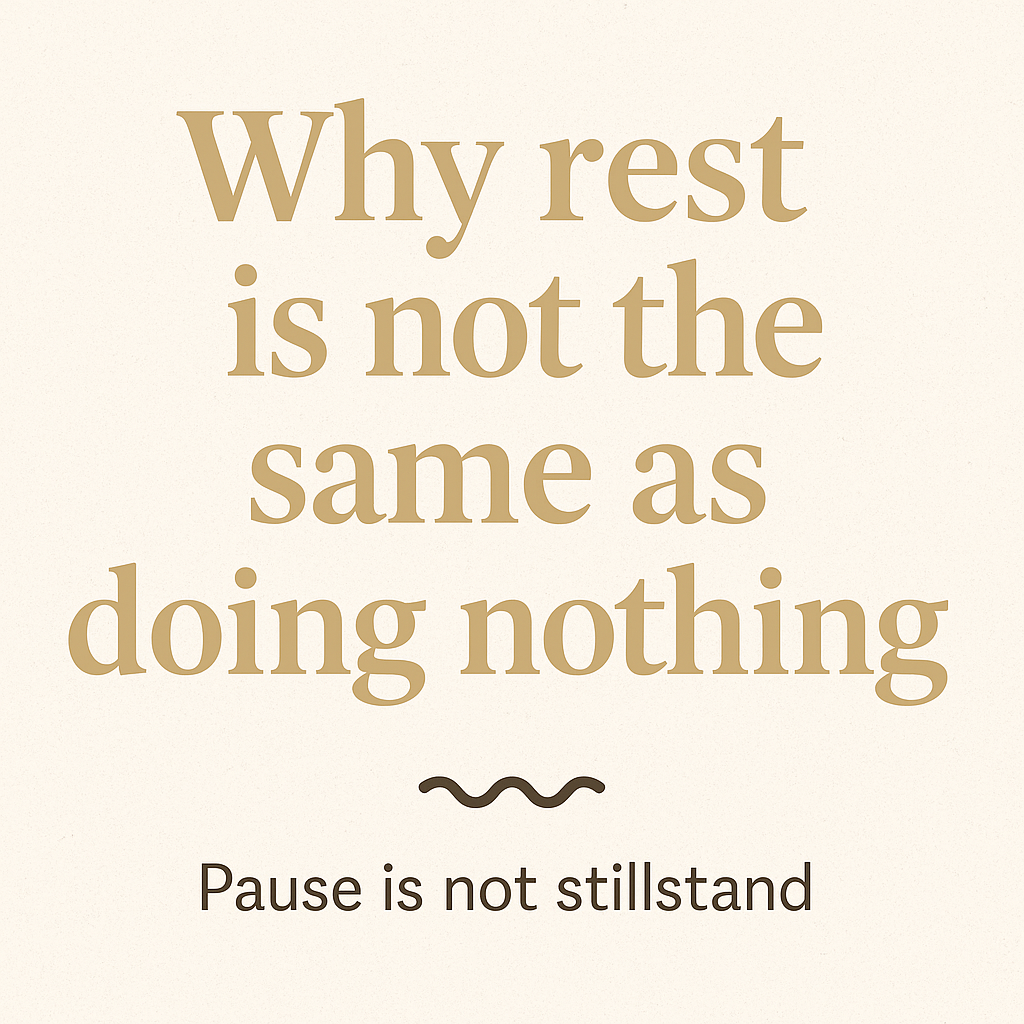Pause is not the absence of work — it’s the presence of purpose.
In many languages, rest means to stop.
To do nothing. To disconnect.
But in German, “Pause” is not just absence — it’s a meaningful shift.
1. A Pause is not emptiness. It’s presence.
It may look like you’re doing nothing.
But in fact, you’re…
- regenerating,
- recovering,
- reflecting,
- recharging.
That’s why many German words reflect this logic:
- Erholung – recovery
- Auszeit – time out
- Unterbrechung – interruption
- Stillstand – full standstill
But none of them mean quite the same as Pause.
2. Stillstand is not the goal.
In English or Spanish, rest might imply “pause everything.”
In German, Stillstand is something else:
- not moving,
- not progressing,
- not developing.
That’s why Germans often say:
“Wir dürfen keinen Stillstand zulassen.”
“We must not allow standstill.”
So rest isn’t about stopping.
Se trata de pausing with intention.
3. Pause in language, in life, in learning
German culture values rhythm.
Even conversation has its natural Pausen.
Think of music. Of breath.
Of a well-timed silence before you speak.
Students often ask me:
“Should I keep learning without breaks?”
“Will I forget everything if I take time off?”
And I always tell them:
Your brain needs Pause.
But it doesn’t want Stillstand.
4. Learning in rhythms, not sprints
When you study a language, your brain builds new roads.
But it also needs time to let the traffic flow.
That’s what Pause does:
- It cements your memory,
- settles new structures,
- builds the system of logic quietly.
So take breaks. Pause often.
But do it with meaning.
5. Don’t confuse stillness with stagnation
Silence can be powerful.
Rest can be creative.
Stillness can bring insight.
But Pause is not the same as giving up.
True rest moves you forward.
📘 Author’s Column — The Language I Live
Language. Identity. Choice. Meaning.
📍 Tymur Levitin — founder, teacher, and translator
🔗 Elija su idioma
🔗 Levitin Language School – Main Website
🔗 Levitin Language School – US Website
🔄 Related reading from our blog:
- Üben ist nicht arbeiten — Why Practicing Is Not the Same as Working
- German Ends with -ung, But What Does It Mean?
- Stille vs Stil — When Silence and Style Sound the Same
© Tymur Levitin






















